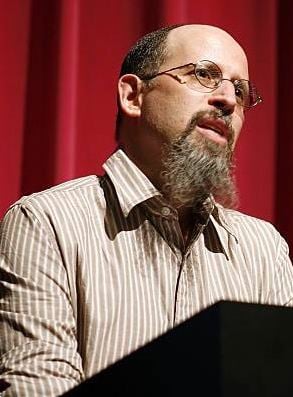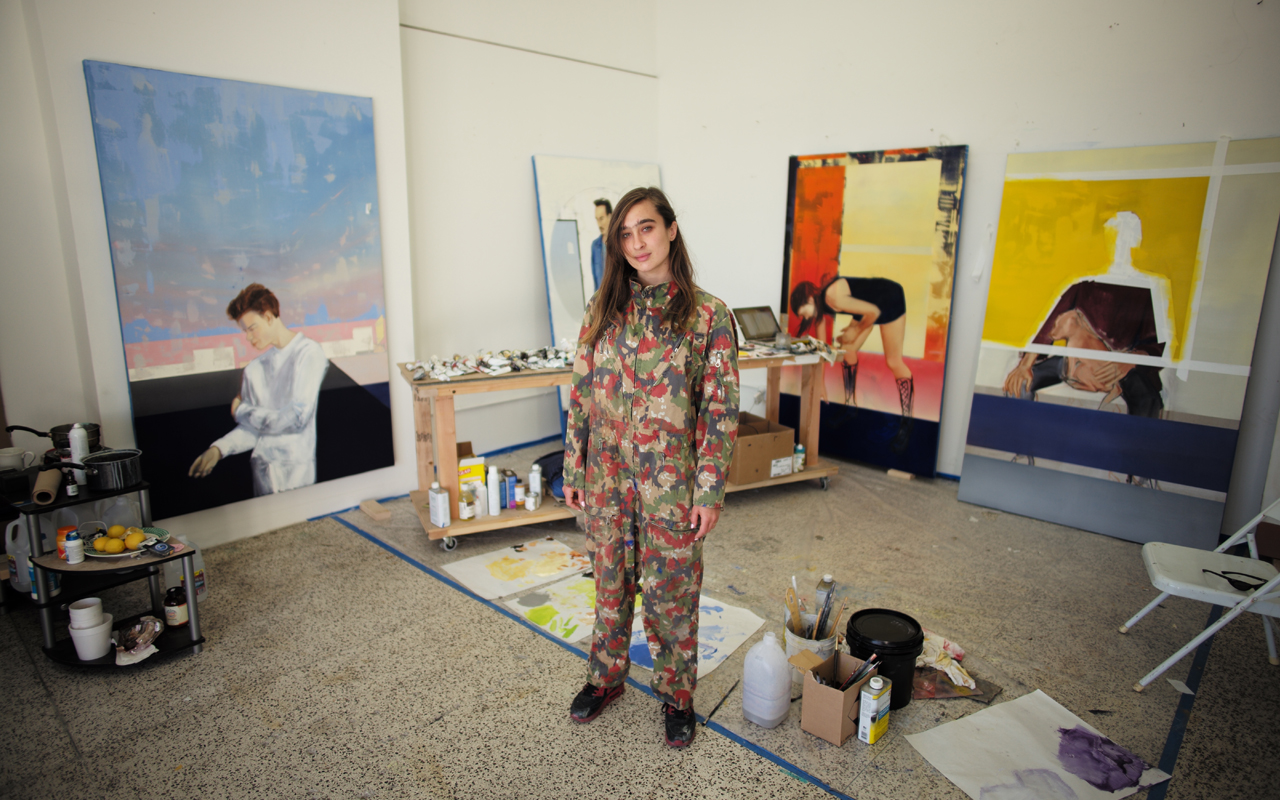Festivals DOKUARTS: Visual Alterity (Berlin, 4-15 October, 2023)
DOKUARTS: Visual Alterity
After a three-year hiatus, and with the help of renewed funding from the German Capital Cultural Fund, DOKUARTS returned to Berlin Cinemas again in October 2023, and with another challenging and thought provoking selection of films that played in new venues across the city. In previous years the documentaries and related talks, lectures, live essays, and panel discussions all took place at the central Zeughaus Kino. However, this year the films were screened across Berlin, at the Kino in der Kulturbrauerei in Prenzlauer Berg, the BrotfabrikKino in Weissensee, and KLICK Kino in Charlottenburg, moving the festival away from Berlin’s central Mitte district and into local neighbourhood areas.
This year’s DOKUARTS Forum was named Visual Alterity and took place at a fourth venue, the Haus für Poesie, also in the Kulturbrauerei complex of Berlin’s Prenzlauer Berg district, immediately north east of the centre. The notion of Visual Alterity explores the cinematic view of the ‘Other’. The hypotheses that were put forward for the Forum included questions such as: How does the Self form as an identity in flux in the confrontation with the ‘Other’? Which aesthetic strategies characterize the ethical practice in the realm of documentary film? How do the arts and the art of documentary film give a voice to the ‘Other’? The Forum was introduced once again by DOKUARTS Artistic Director Andreas Lewin.
 Ross Lipman: Representing the Other
Ross Lipman: Representing the Other
Returning DOKUARTS guest Ross Lipman is an independent filmmaker, essayist, archivist, conservator, and artist, based out of Los Angeles. For this year’s Visual Alterity Forum he presented the German Premiere of his 55-minute ‘Live Essay’ called The Book of Paradise Has No Author, a project he started researching in 2010 and completed in 2023. This essay’s focal point is the travels in the summer of 1971 of Manuel Elizalde, a Filipino entrepreneur who was regarded as a crony of the then president and dictator, Ferdinand Marcos. Elizalde announced the discovery of a tribe of cave dwellers (called the Tasaday) who had lived in complete isolation for thousands of years in the rainforest of Mindanao in the Philippines. Lipman’s sensory ‘Live’ presentation essay integrated rare ethnographic footage, vintage television broadcasts, personal recordings, and stills, to tell a somewhat tragic and provocative, but also dubious and questionable, tale of an ambivalent (or contrived) encounter with the Tasaday. The test case here becomes the authenticity in representing the ‘Other’ and of reality itself.
Joining Ross Lipman in the Forum for films, talks, lectures, and a panel discussion were Dr. Orna Raviv (philosopher and filmmaker, Tel Aviv University, Israel Institute) who presented the introductory keynote talk called Who is the Documentary Other? Levinas and Ethics of Alterity in Documentaries; Yoram Ron (filmmaker, Tel Aviv), the director of Absent God in this year’s DOKUARTS program, about the (aforementioned) philosopher Emmanuel Levinas; and also Michèle Stephenson (filmmaker and activist, New York) and Joe Brewster (psychiatrist and filmmaker, New York) the co- directors of Going to Mars: The Nikki Giovanni Project, which also screened in the 2023 DOKUARTS edition. The moderator of the lively discussion was Bert Rebhandl (Journalist and Author, Film Critic for Frankfurter Allgemeine Zeitung et al., and Co-Editor of Cargo Film Medien Kultur).
Following the Visual Alterity Forum and his Live Essay, Ross Lipman presented two new unconventional works in the more conventional film format. The first of these was Between Two Cinemas, a work which looks at his underlying notion of the close relationship between philosophy and entertainment. For Lipman, these are not contradictory entities but ones that complement each other well. With examples, he shows how this transcends into filmic representation, with a hybrid of autobiographical essay, newly edited short films, and unpublished archival material. The effect is a somewhat seamless juxtaposition that blends aesthetic questions with a self-reflection of his own artistic path that fluctuates between abstraction and realism, avant-garde and feature film, all while journeying across his personal inference of the American and European mindscape. The result is challenging but at the same time intriguing and not without humour.
The second presentation, The Case of the Vanishing Gods, also contains a parallel narrative featuring a ventriloquist's dummy called Hugo as a case representation for the ‘Other’. The dummy is in a personal crisis so seeks help from a psychologist. It is also Ross Lipman's latest film and encapsulates many elements at once, that being: fiction, documentary, essay, and dream interpretation. A deliriously sinister and unsettling work, it serves not only as a very compelling history of ventriloquism but represents the perennial omnipresence in cinema history of blurring the boundaries between reality and imagination, humour and fear. Most of all, it seeks to pinpoint that which is inauthentic, and the desire for it in the form of entertainment.
The Long Path to Recognition and Reappraisal
Aside from Ross Lipman and the Forum events, one of the early screenings in the program was Going to Mars: The Nikki Giovanni Project, taking a candid, up-close and personal look at the life of the African-American poet. For over six decades Nikki Giovanni has given a strong, political voice to the experience as poet, writer, commentator, activist, and educator. This multi-layered portrait combines impressive archival material and live performances with personal encounters and the visualization of her poems. The title also alludes to Giovanni’s many poetry anthologies, poetry recordings, and nonfiction essays, as well as topics ranging from race and social issues to children's literature. Directors Joe Brewster and Michele Stephenson were able to gain the trust of their subject, so much so that they were able to reveal the person behind the artist and her creative prowess. The film won the prestigious Grand Jury Prize (U.S. Documentary Competition) at the 2023 Sundance Film Festival. At the Visual Alterity screening it was introduced by its co-directors for what was its European Premiere.
Getting It Back - The Story of Cymande is director Tim MacKenzie-Smith’s chronology of the fifty-year journey to legend status of the British Psychedelic Funk group Cymande, who were initially active from 1971-1974. Emerging out of South London at a time of social and institutional prejudice, they were discovered playing in a Soho basement club by British R&B producer John Schroeder, who got them signed after they recorded some demos. With a musical line-up deriving from several Caribbean nations, Cymande were noted for combining funk, soul, reggae, rock, African music, calypso, and jazz.
Their first release, The Message, reached the Billboard top 100 and R&B charts in the United States, with their self-titled 1972 debut album also reaching the Billboard pop and R&B album charts. During this period the group toured the United States successfully and in 1973 they made history as the first British band to headline the Apollo Theatre in New York. However, after three albums they achieved little notice from the British music industry and this caused the group to break up in 1974.
After a period of obscurity, Cymande's music was rediscovered in the 1980s and 1990s. Early hip-hop DJs Kool Herc and Grandmaster Flash deconstructed their songs as breakbeats. By the late 1980s they were being sampled regularly by rap artists like De La Soul, EPMD, The KLF, MC Solaar, Heavy D, and many others. Further recognition arrived in 1994 when filmmaker Spike Lee used the Cymande song Bra in his film Crooklyn and the same song in his 2002 film 25th Hour. Due to their new popularity the remaining members of the band have since reformed, for a one-off in 2006, and from 2012 to the present, including a short world tour in the spring of 2024. MacKenzie-Smith was present to introduce the Berlin screening at KLICK Kino in the Charlottenburg district, and was also present for a Q&A afterwards.
Nancy Buirski’s invigorating Desperate Souls, Dark City and the Legend of Midnight Cowboy follows the production and legacy of the Academy Award-winning film Midnight Cowboy (1969). The story about a Texan hustler on the streets of Manhattan was directed by John Schlesinger and starred Jon Voight alongside Dustin Hoffman. It also reassesses the late 1960s period in which the film was made, the backdrop of counter-culture, anti-war protests, and social change. The use of contemporary and rare interviews, alongside sumptuous archive footage, makes for a more than worthwhile historical revision of a popular cultural icon, containing compellingly high documentary production values. After its world premiere at the 79th Venice International Film Festival in 2022, followed by further festival screenings, it was also shortlisted for Best Documentary Feature Film qualification at the 96th Academy Awards in March 2024.


